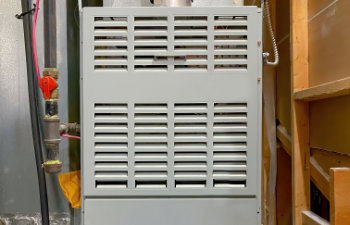
As the temperatures drop and winter approaches, the reliability of your home’s heating system becomes crucial for comfort and safety. If you are facing issues with your furnace, you may be wondering whether it is time for a repair or if it is more cost-effective to replace the unit. Making the right decision is essential for both your comfort and your budget. Here is what to consider when deciding whether to repair or replace your furnace.
1. Age of the Furnace
The age of your furnace is a significant factor in the decision-making process. Furnaces typically have a lifespan of 15-20 years, depending on their make and model. If your furnace is nearing the end of its expected lifespan and requires a costly repair, it may be more cost-effective in the long run to invest in a new, energy-efficient furnace rather than repairing an older, less efficient one.
2. Cost of Repairs
Consider the cost of repairs when deciding whether to repair or replace your furnace. If the repair costs are relatively low and the furnace is otherwise in good condition, a repair may be a reasonable option. However, if the repair costs are approaching or exceeding half the cost of a new furnace, it is often more economical to replace the unit, especially if your current furnace is older.
3. Energy Efficiency
Energy efficiency is a critical consideration when evaluating your furnace. Older furnaces tend to be less energy-efficient than newer models. Replacing an older, inefficient furnace with a modern, high-efficiency unit can result in significant energy savings over time. Be sure to check the Annual Fuel Utilization Efficiency (AFUE) rating of your current furnace and compare it to newer models to assess potential savings.
4. Consistency and Reliability
If your furnace frequently breaks down or requires multiple repairs within a short period, it may not be worth the hassle and expense of continued repairs. Unreliable heating can lead to discomfort, inconvenience, and even safety concerns during cold weather. A new furnace can provide more consistent and reliable heating, offering peace of mind.
5. Energy Bills
Monitor your energy bills. If you have noticed a significant increase in heating costs, it could be due to an inefficient furnace. Upgrading to a more energy-efficient model can lead to long-term savings on your utility bills, offsetting the initial investment of a new furnace.
6. Comfort and Safety
Your comfort and safety are paramount. An older furnace may not heat your home evenly or adequately, leading to cold spots and discomfort. Moreover, older furnaces can pose safety risks if they are not functioning correctly, including carbon monoxide leaks. Your family’s safety should be a top priority when deciding whether to repair or replace your furnace.
7. Warranty Considerations:
Check if your furnace is still under warranty. The manufacturer’s warranty may cover some repairs, potentially reducing the repair costs. However, warranties typically have limitations; if your furnace is older, it may no longer be covered.
9. Consultation with HVAC Professionals
If in doubt, consult with HVAC professionals. Our team at ClimateSmith, LLC can assess the condition of your furnace, provide a detailed cost-benefit analysis, and offer recommendations based on your specific circumstances. Our expertise can help you make an informed decision. Call our team at our Alpharetta, GA, office to schedule a furnace inspection.
Posted on behalf of
5190 Performance Dr
Cumming, GA 30040
Phone: (770) 475-9555
Email: contact@climatesmith.com
Mon - Fri
8:00am - 5:00pm





